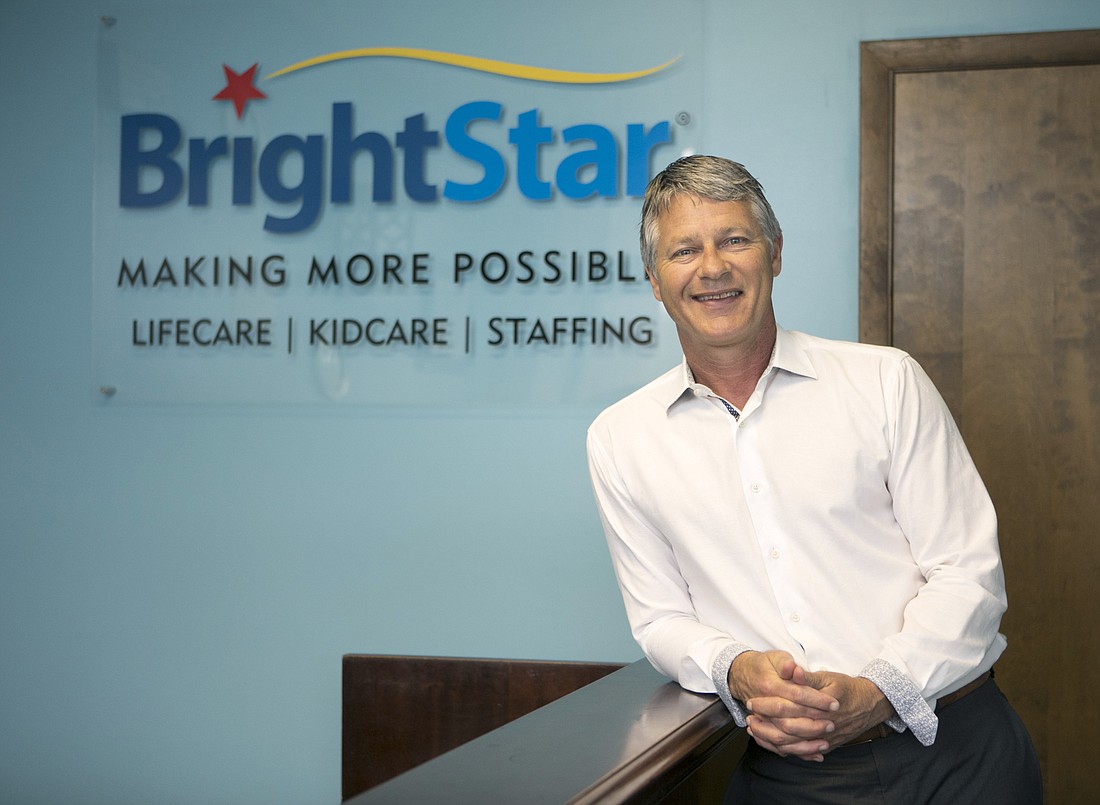- February 3, 2026
-
-
Loading

Loading

As entrepreneurs go, Robin Hazel is what you might call a late bloomer. He spent 21 years with Univar, an Illinois-based chemical distribution company, and became one of the company’s top executives, overseeing a $100 million budget and operations in Florida, Georgia and Puerto Rico.
Everything changed in 2011. That's when Hazel, pushing 50 and with a family to support, quit his job and cashed in his 40(k), determined to go into business for himself.
“If you go to work every day with the mentality that failure’s not an option, you’ll work with a greater sense of purpose.” Robin Hazel, BrightStar Care franchisee
“At the time, I felt like it was now or never in terms of going out and doing something on my own,” he says. “It scared my wife to death, but I just said, ‘If I don’t do this now, I’ll never do it. I’ll get locked into another job, and someday I’ll sit in my rocking chair regretting this moment.’”
Today, at 56, Hazel runs a profitable BrightStar Care franchise, based in Pinellas County. Headquartered in Gurnee, Ill., BrightStar Care specializes in home health care and has about 300 franchises nationwide.
Although he declines to disclose specific revenue figures, Hazel says he set the company record for most revenue by a first-year, second-year and third-year franchisee. His second-year growth was particularly robust, rising by 214% over his first year with BrightStar.
“We came out of the box flying,” Hazel says, “sometimes at breakneck speed. It’s been a fantastic ride.”
Sounds so easy. So how did he do it?
First, Hazel took time to think and plan.
“I sat around in my underwear for six months trying to figure out how I was going to make a living,” he says with a laugh.
That time gave him an opportunity to step back from the daily grind of work and educate himself about big-picture trends. Hazel, with a degree in economics, took a deep dive into demographics.
“I started looking at the data behind the home health care industry,” he says. “There’s a huge wave of baby boomers that are coming into their senior years, and every forecast says there’s going to be this giant need, within health care, for senior care.”
The more Hazel read about the field, the more he came to realize the home health care industry is highly fragmented, without many large, dominant companies. “I felt the industry had a lot of growth left to it,” he says.
Successfully executing a drastic career change also requires a person to be honest with himself or herself about their reasons and intentions. Hazel admits his decision wasn’t necessarily driven by affection for seniors or a desire to serve. “The financial component and the demographics just made sense,” he says. “But once I got into this, I realized, ‘Wow, this is incredibly meaningful work.’ I’m helping families every day — it’s very personal and much different than the business I had been in.”
Hazel recommends the franchise model as a good fit for later-in-life entrepreneurs who have more to lose. Despite a burning desire to forge his own path and a healthy tolerance for risk, “I was scared to strike out on my own, without any support, without knowing anyone in the industry,” he says. “The framework of a franchise offered me some structure, so I wasn’t just flailing in the dark.”
Hazel estimates he spent about $300,000 to launch his BrightStar Care franchise. The company told him he would need to be prepared to work for up to 11 months before he broke even, but for Hazel, that wasn’t an option. “In some ways, I went in under-capitalized,” he says. “But that made me work with such a sense of purpose, because I didn’t have the luxury of waiting 11 months.”
With a stay-at-home wife and two kids in school, “I knew I needed money faster than that or I’d run out.”
Hazel’s other piece of advice for leaving corporate America in the rearview mirror? Jump into your new venture with two feet — and burn the ships.
“This was going to work because it had to work,” he says. “I cashed in my 401(k) and I could not look back. When settlers came to a new land, they burned the ships so they couldn’t go home to the motherland. You’ve just got to make it work. If you go to work every day with the mentality that failure’s not an option, you’ll work with a greater sense of purpose.”
How to motivate people to meet sales goals
How to run an effective brainstorming session
How to get a business loan when you need one
Have a crisis to manage? Here's how
How to deliver potentially scary news to employees
How to go out on your own and leave a corporate gig and salary behind
How to launch a B-Corp that generates results
How to hire and train people fast
How to manage multiple generations in the workplace
How to provide exceptional service